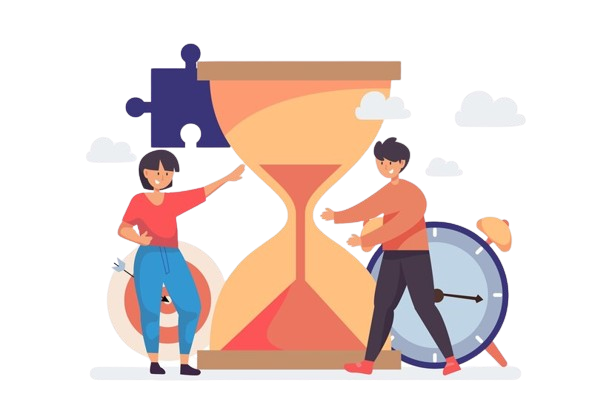We’ve all had those days when the clock seems to crawl, and no matter how much we try to focus, time just doesn’t seem to move. Whether you’re dealing with monotonous tasks or just feeling uninspired, a slow-moving workday can leave you frustrated and demotivated. But don’t worry—there are practical ways to make time feel like it’s flying by. In this article, you’ll discover effective mind hacks to help you stay engaged, productive, and keep the workday moving at a much quicker pace.
Why Time Feels Slow at Work
Time often feels slow when you’re disengaged from your tasks or not challenged by the work at hand. Your cognitive perception of time is influenced by various factors such as boredom, lack of variety, and even your emotional state. The more routine and repetitive the task, the slower time can feel. By understanding why this happens, you can take control and use specific strategies to make time go faster.
Effective Mind Hacks to Make Time Go Faster
1. Break Your Day Into Smaller Tasks
One of the simplest and most effective ways to make time go faster is to break down large, daunting tasks into smaller, manageable pieces. This is called task chunking. Instead of staring at a long to-do list, divide your tasks into smaller sections. Each time you complete one of these mini-tasks, you’ll feel a sense of accomplishment, which keeps you motivated and gives your brain something new to focus on. The frequent achievements keep you engaged, making time feel like it’s moving faster.
2. Use the Pomodoro Technique
The Pomodoro Technique is a popular time-management strategy where you work in short, focused sprints (typically 25 minutes), followed by a 5-minute break. This method helps your brain maintain focus while preventing burnout. By breaking your work into timed intervals, you create a series of mini-deadlines, which make time go faster. Plus, the frequent breaks help you recharge, keeping your mind fresh and productive.
3. Stay Engaged with New Challenges
Time flies when you’re engaged, and nothing keeps you engaged more than new challenges. If your work starts to feel too routine, challenge yourself with something new. Whether it’s learning a new skill, volunteering for a new project, or tackling a complex problem, introducing novelty into your day can make time go faster. This happens because your brain is more stimulated when processing new information or skills.
4. Listen to Music or Audiobooks
Having background music or audiobooks can trick your brain into thinking time is passing more quickly. The right type of music can put you in a flow state where you’re so engrossed in your work that hours pass by in what feels like minutes. For tasks that require concentration, instrumental music or low-tempo playlists work best. Audiobooks can also be great companions during more repetitive tasks, keeping your mind engaged and helping to make time go faster.
5. Use Active Time Management
Being strategic about how you manage your time is key. Prioritize your tasks in order of importance and set clear deadlines. Even if those deadlines are self-imposed, they create a sense of urgency that keeps you motivated. Time always feels faster when you have a clear direction and purpose for what you’re working on. Make sure you track your progress and reward yourself when you complete tasks on time. This approach will help make time go faster and keep you productive.
6. Take Frequent, Short Breaks
Taking regular breaks can help your brain process time more efficiently. Sitting at your desk for long periods can lead to fatigue and a slower perception of time. Instead, take short, frequent breaks to stretch, walk around, or simply step away from your work. These breaks help recharge your mental energy, making it easier to focus and speeding up the perceived passage of time when you return to work.
7. Gamify Your Work
Turning your tasks into a game can be a powerful motivator. This technique, known as “gamification,” involves turning mundane tasks into mini-competitions or challenges. For example, you can set a timer and challenge yourself to complete a task before the timer runs out. You can also reward yourself after finishing a set of tasks. These small wins make your day more exciting and make time go faster.
Maintaining Mental and Physical Energy
To ensure these hacks work effectively, it’s crucial to maintain your mental and physical energy throughout the day. Simple actions like staying hydrated, taking regular breaks, and incorporating light physical activity can keep you energized and focused. The more alert you are, the faster time will seem to pass.
Mindset Shifts to Make Time Go Faster
A positive mindset can work wonders on your perception of time. Try to approach your work with gratitude—focus on what you’re accomplishing rather than what you haven’t finished yet. Mindfulness and staying present can also help you enjoy the moment and make time go faster. When you stop focusing on how much time is left and instead focus on your task, the day will pass by effortlessly.
Conclusion
By applying these mind hacks, you can transform a slow workday into one that feels fast-paced and productive. Whether you’re using the Pomodoro Technique, breaking your day into smaller tasks, or staying engaged with new challenges, there’s always a way to make time go faster at work. Experiment with these strategies and discover what works best for you. Before you know it, your workdays will seem shorter, and you’ll feel more accomplished.







